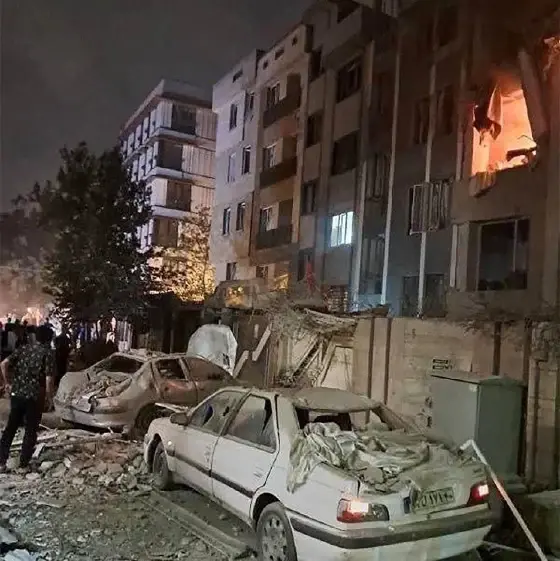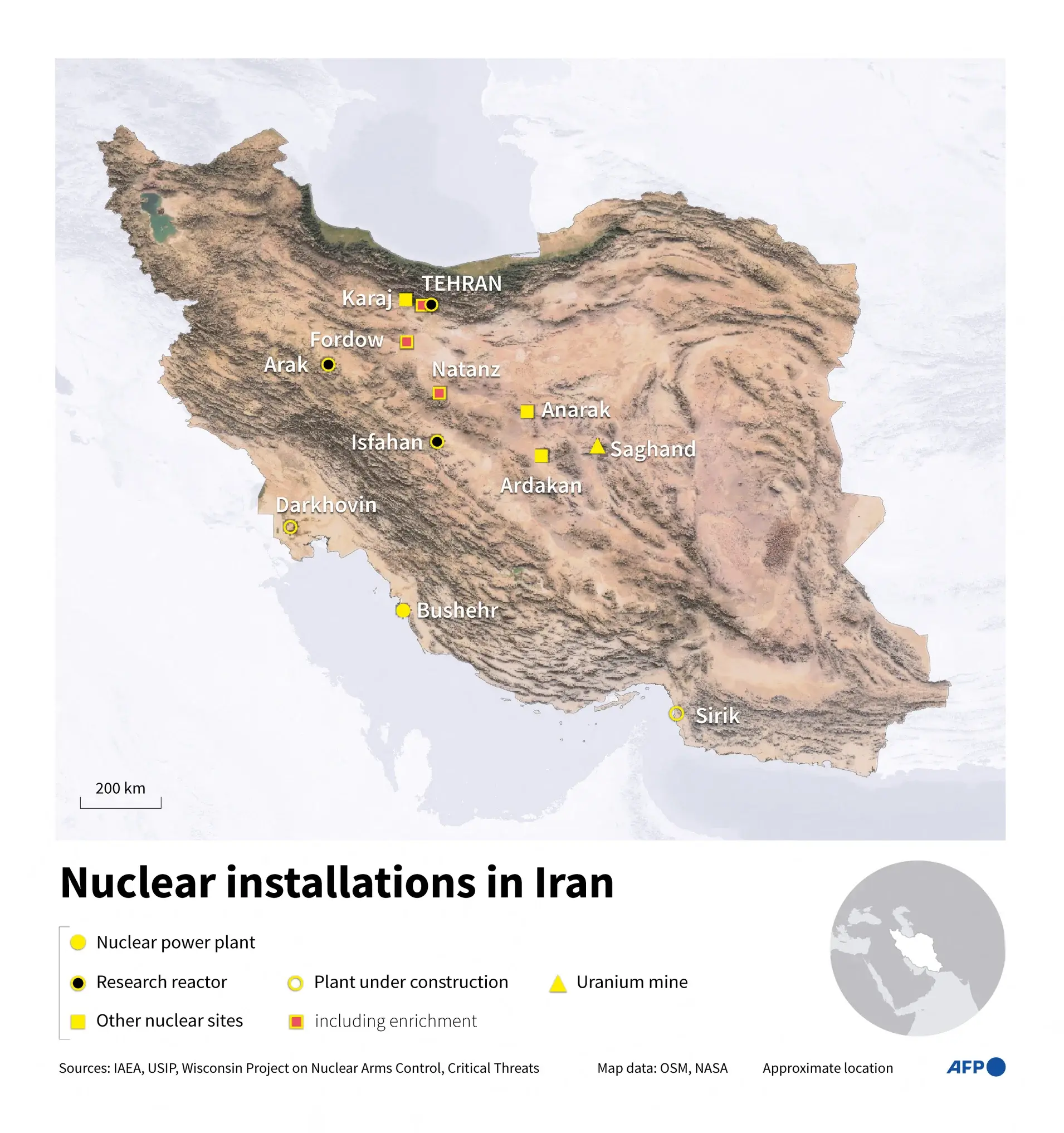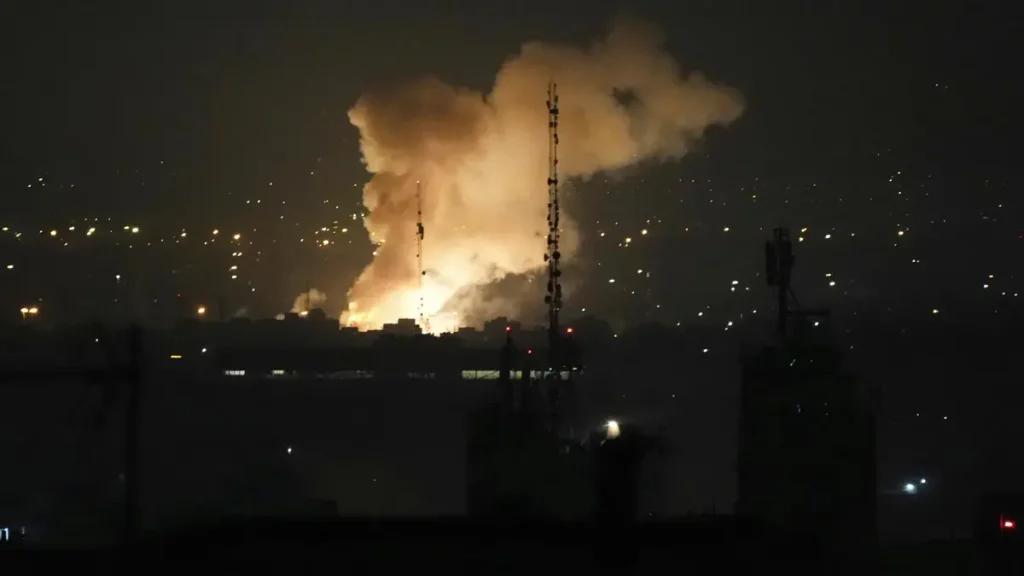On June 13, 2025, Israel launched Operation Rising Lion, a large-scale preemptive strike against Iranian nuclear and military targets. Dozens of sites—including enrichment facilities at Natanz, senior IRGC leadership compounds, and missile infrastructure—were hit by Israeli jets and missiles. Prime Minister Benjamin Netanyahu framed the attack as essential to thwart Iran’s rapid progress toward weaponizing fissile material. Iran confirmed the deaths of senior commanders and nuclear scientists and vowed retaliation. The strikes mark a significant escalation in the Iran–Israel confrontation and threaten to derail diplomatic efforts even as nuclear talks were poised to resume.
Why Did Israel Attack Iran?
Israel’s government justified the strikes as a necessary preemptive measure against an imminent existential threat. Intelligence assessments indicated that Iran possessed sufficient highly enriched uranium for up to nine warheads and had taken unprecedented steps toward weaponizing it, with an operational timeline under a year if left unchecked. Prime Minister Netanyahu declared that “we struck at the heart of Iran’s nuclear enrichment and weaponization programs” to ensure Israel’s survival amid what he described as Iran’s genocidal intent.

Did Israel Attack Iran’s Nuclear Sites?
Yes. Among the nuclear targets, the following were struck:
-
Natanz: Iran’s principal uranium enrichment facility was hit by airstrikes, resulting in large explosions and fires at centrifuge halls.
-
Khondab and Khorramabad: Secondary enrichment and storage sites were also targeted to degrade Iran’s breakout capability.
-
Scientific Personnel: Iranian state media confirmed the deaths of Revolutionary Guard Commander Hossein Salami and nuclear scientists Fereydoun Abbasi-Davani and Mohammad Mehdi Tehranchi among other specialists.
How Did Israel Conduct the Strikes?
The offensive combined air force strikes—including F-35 jets and long-range cruise missiles—with covert Mossad sabotage operations against air defenses and missile production lines. The multi-axis approach focused on precision to minimize civilian casualties while achieving strategic objectives. The first stage alone involved dozens of aircraft executing simultaneous attacks across multiple provinces, demonstrating significant logistical coordination and intelligence preparation.
Iran Strike Aftermath and Casualties

-
Senior Commanders: Iran’s top Revolutionary Guard commander Hossein Salami was killed, marking a major blow to IRGC leadership.
-
Scientists: Losses included at least two leading nuclear scientists, deepening concerns about Iran’s ability to sustain its program.
-
Civilian Impact: Explosions in Tehran’s residential neighborhoods caused civilian casualties; state media reported women and children among the dead.
-
Regional Shock: Neighboring states closed airspace, and oil markets spiked over 8% amid fears of broader conflict.
Why a Preemptive Strike?
Israel asserted that diplomatic avenues had failed to contain Iran’s acceleration toward a deliverable nuclear weapon. With U.S.-Iran talks scheduled in Oman, Netanyahu’s government opted for military action to ensure that Iran could not cross the breakout threshold—a decision he framed as in both Israeli and American interests.
International and U.S. Response
-
United States: Washington denied involvement. Secretary Rubio emphasized U.S. forces would be protected but affirmed Israel’s right to self-defense. President Trump remained publicly supportive of Israel’s security concerns.
-
Global Reaction: European and regional leaders urged restraint to prevent full-scale war. The UN Security Council convened emergency deliberations amid calls for de-escalation.
Israel Attack Iran: Retaliation or Diplomacy?
Iran has vowed a “harsh response,” with IRGC spokesmen warning of missile and drone strikes on Israeli and possibly U.S. bases in the region. Oil export chokepoints such as the Strait of Hormuz face heightened risk. Meanwhile, the IAEA is monitoring for radiological leaks, and the U.S. and EU are reevaluating sanctions and contingency plans in light of the heightened conflict.
Israel’s strikes against Iran represent a dramatic escalation in the long-running confrontation over Tehran’s nuclear ambitions. By opting for preemptive military action, Israel has recalibrated the regional security paradigm, leaving international diplomacy and the threat of further retaliation very much in flux.


